
Clean Slate Project Assists Attendees at Veterans’ Stand Down and Project Homeless Connect Event
13 Oct 2017
For the second year, the Civil Clinic offered legal services to veterans and homeless at the Veterans' Stand Down and Homeless Connect Event. Supervised by Professor Sullivan, Civil Clinic students Meaghan Geraghty, Katie Lesiak, Brian Lisonbee, Kasey Ogle, Ally Hubbard, and Marissa Curtiss provided legal advice and legal document drafting assistance to attendees, mostly in the area of post-conviction relief (criminal set-asides and pardons), but on other civil matters as well. In total, the team served around 35 members of the community. The Clinic's participation in the event was coordinated by Meaghan and Katie, who are leading the Clinic's Clean Slate Project this semester.
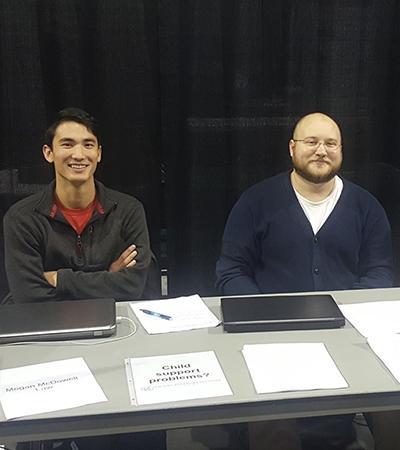
Family Law Project Assists Attendees at Project Homeless Connect Event
13 Oct 2017
Clinic students Jon Smith and Patrick Ryan, along with Clinic alum Megan McDowell, provided advice and forms on child support modification at this year's Project Homeless Connect Event at the Pinnacle Bank Arena. In total, the team assisted 29 member of the community. Jon and Patrick are operating the Clinic's Family Law Project this semester, and volunteered to assist Megan at her booth.
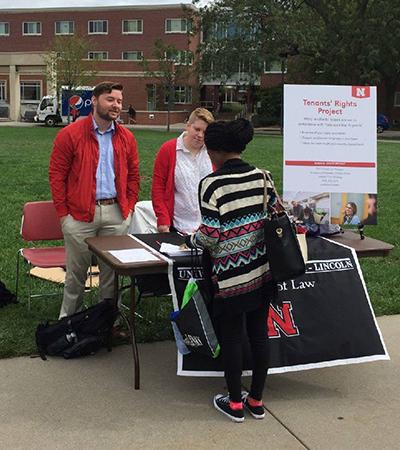
Tenants’ Rights Project Provides Information to Nebraska Students Seeking Off-Campus Housing
13 Oct 2017
Senior Certified Law Students Christian Gobel and Kasey Ogle developed and staffed a booth at the University of Nebraska-Lincoln’s Fall Housing Fair on October 4. Christian and Kasey are working on the Tenants’ Rights Project this semester as part of their experience in the Civil Clinic. The annual Housing Fair is a forum for housing providers in Lincoln to advertise off-campus housing options to UNL students. The Tenants’ Rights Project booth provided students with information about their legal rights as tenants, including a link to a web site created by Christian and Kasey with information about how to request refund of a security deposit, problematic language in leases to avoid, and other general information about tenants’ rights under Nebraska’s Residential Landlord and Tenant Act. Nearly 200 pamphlets were distributed to interested students during the three-hour Housing Fair.

Immigration Clinic Students Present to Undergraduate Class
11 Oct 2017
On October 5, Immigration Clinic students Morgan Nelson and Phong Tran presented to Professor Regian Werum’s Sociology of Race and Ethnicity class on UNL’s city campus. The focus of the presentation was on the work they are doing as students in the Immigration Clinic. Specifically, Morgan and Phong talked about cases in which they are representing cases in the following areas: DACA (Deferred Action for Childhood Arrivals), VAWA (Violence Against Women Act), and asylum. They explained to the students in Professor Werum’s class what their role is as students in the Immigration Clinic, the administrative structure of the federal cabinet departments that run the U.S. immigration system, and the substantive and procedural provisions with which immigrants must contend while interfacing with the immigration bureaucracy in the U.S. Their presentation continues a tradition of Immigration Clinic students presenting to Professor Werum’s Sociology class during the fall and spring semesters of each academic year.
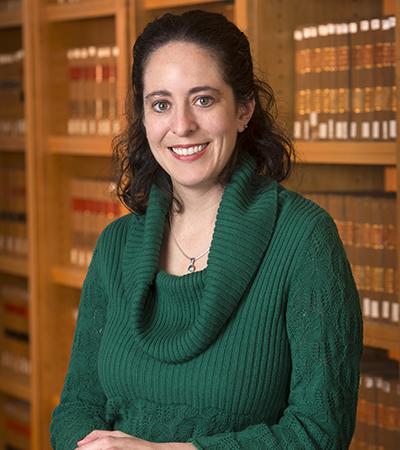
Blankley's Article Published in Ohio State Journal on Dispute Resolution
02 Oct 2017
Associate Professor Kristen Blankley published the article Agreeing to Collaborate in Advance? in the Ohio State Journal on Dispute Resolution. This article considers the recent phenomenon of including a pre-dispute agreement to solve conflicts through collaborative law, which is a specialized form of negotiation that eschews court involvement in favor of settlement with collaborative attorneys. The article predicts court reactions to these agreements based on other types of pre-dispute agreements, such as pre-dispute mediation and negotiation agreements. Ultimately, the article suggests not enforcing these agreements based on collaborative law policy goals and dispute resolution ethics.
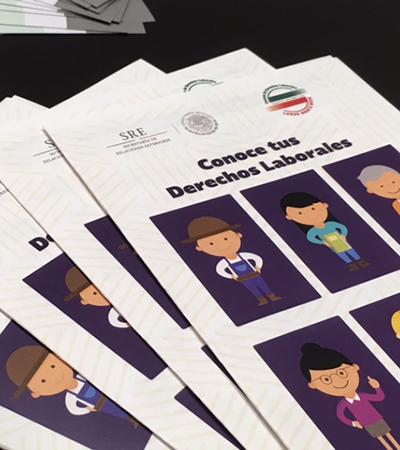
Nebraska Law Hosts Walk-In Deferred Action for Childhood Arrivals (DACA) Clinic
26 Sep 2017
On Sunday, September 24, 15 students participated in a walk-in clinic to help individuals renew their DACA (Deferred Action for Childhood Arrivals) status. DACA, a program started in 2012, permits individuals who were brought to the United States as children to receive deferred action and employment authorization. The current Administration announced on September 5 that it is discontinuing the DACA Program. Those whose DACA status expires before March 5, 2018 are eligible to apply to renew their status, provided the renewal application is filed before October 5, 2017.
The Mexican Consulate in Omaha approached the Immigration Clinic at the College of Law about hosting a walk-in clinic to help interested individuals renew their DACA status before October 5. Current Immigration students Morgan Nelson, Miranda Rogers, and Phong Tran organized the walk-in clinic.
Students who volunteered to help with the clinic attended a three-hour training on basic immigration law. The clinic on September 24 ran from 10:00 a.m. to 3:00 p.m. and was held in the Schmid Clinic Building. The Mexican Consulate also had a presence at the clinic.

Students who participated in the DACA clinic are: Sydney Aase, Kelsey Arends, Paloma Contreras, Meaghan Geraghty, Damon Hudson, Nicole Iraola, Stephen King, Daniel Martin, Megan Meyerson, Adam Onken, Deanna Pina, and David Shea. Assistant Dean Tasha Everman also participated in the clinic.
The students who participated in the clinic were authorized to provide legal assistance to clients under a federal regulation that allows law students enrolled in an accredited law school to provide immigration legal services to clients. Such students must be supervised by a faculty member who is a licensed attorney. The students participating in the DACA clinic were supervised by Professor Kevin Ruser.
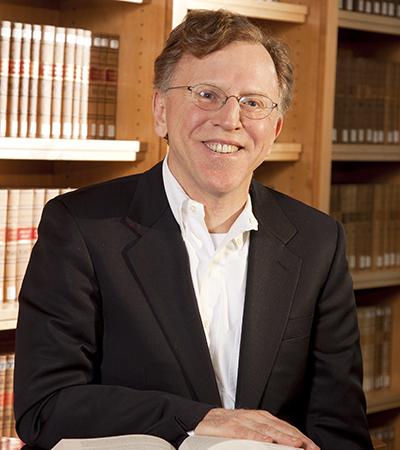
Willborn Publishes Updated Casebook
21 Sep 2017
Employment Law: Cases and Materials, sixth edition, co-authored by Steven L. Willborn, Stewart J Schwab, John F. Burton Jr., and Gillian L. L. Lester, has been released.
This edition focuses on important unifying themes in employment law, such as the struggle for authority in the workplace between employers, employees, and the government, the relationship between employment law and labor markets, and the appropriate remedies for employment law violations.
The Sixth Edition carries forward most of the cases and materials that have proven to be good teaching tools to permit a smooth transition for current users. But it highlights emerging new or expanded areas of interest including:
- Whether Uber drivers are employees;
- Whether employees can be fired for talking about work on Facebook;
- Whether sexual orientation falls within Title VII’s prohibition on sex discrimination;
- When off-work cellphone use is working time under the FLSA;
- How to analyze employer promises to provide health care to retirees;
- The likely effects of efforts to repeal Obamacare on employer-provided health insurance;
- The constitutionality of severe restrictions in workers’ compensation eligibility or benefits;
- Whether penalties for OSHA violations should be assessed one per employer violation or one per employee who is subject to the violation;
- Limits on state efforts to import employee safeguards into the arbitral process; and
- The problem of aligning the twin goals of compensation and deterrence in remedying employment law violations.
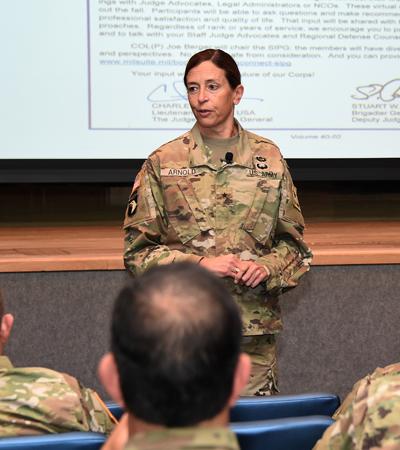
U.S. Strategic Command hosts Advanced Operational Law Conference with NSRI and Nebraska Law
21 Sep 2017
U.S. Strategic Command (USSTRATCOM), in collaboration with the National Strategic Research Institute (NSRI) and the University of Nebraska College of Law, hosted the Advanced Operational Law Conference here Sept. 6-8, to explore the legal perspectives related to 21st century strategic deterrence.
During the conference, international legal and defense experts from government agencies and academia participated in classified and unclassified discussion panels on a variety of topics. They discussed international law applicable to military uses of outer space, rogue states and nuclear weapons, as well as limitations on cyber operations and issues of sovereignty in cyberspace.
Delivering the keynote address, U.S. Army Brig. Gen. Susan Arnold, U.S. Army assistant judge advocate general for military law and operations, emphasized the need for cooperation among experts and that legal issues arise at all levels of command.
“The practice of law is a collaborative process and relies upon the concerted effort of dedicated professionals at every level from the tactical to the strategic and policy realms,” Arnold said.
Arnold also emphasized the importance of being flexible and ready for unexpected situations.
“You think you’re going to be doing X, Y, or Z, but all of us have to be poised regardless of our service and regardless of whether we wear the uniform or civilian clothes to support something that could come out of nowhere,” Arnold said.
David Thaw, University of Pittsburgh assistant professor of Law and Information Sciences, stated that at this year’s conference there was a heightened focus on strategic stability.
“The geopolitical economic environment has changed tremendously, but there really are a substantial series of changes globally, which whether or not they were anticipated, change the ways in which we think about strategic stability and I think that seems to be at the forefront in many of these discussions,” Thaw said.
Jack Beard, University of Nebraska associate professor and faculty advisor for the Space, Cyber and Telecommunications Law Program, noted that the conference was unique because it’s attended by legal and policy experts, legal practitioners and academics.
“The conference gives U.S. military legal officers the opportunity to hear preeminent experts discuss legal and policy issues that are important to them, the work they do and their practice,” Beard said. “USSTRATCOM needs legal advisors who can see the big picture to answer the complicated questions and this is a chance to do that. It’s hard to do when you’re just focused on whatever your particular job is for whatever command you’re in, so this is a really important function for USSTRATCOM and for U.S. national security.”
Arnold added that the conference brought together academics and military professionals from all services as well as different nations.
“The nature of our national security and those of our allies is both politically and legally complex and these conferences reinforce our partnerships and hone our thinking,” Arnold said. “I am very grateful that I had a chance to participate and I look forward to continuing the relationship with USSTRATCOM and the University of Nebraska.
One of nine Department of Defense unified combatant commands, USSTRATCOM has global missions assigned through the Unified Command Plan that include strategic deterrence, space operations, cyberspace operations, joint electronic warfare, global strike, missile defense, intelligence, and analysis and targeting.
Written by: USSTRATCOM
Photo by: Tech. Sgt. Jonathan Lovelady
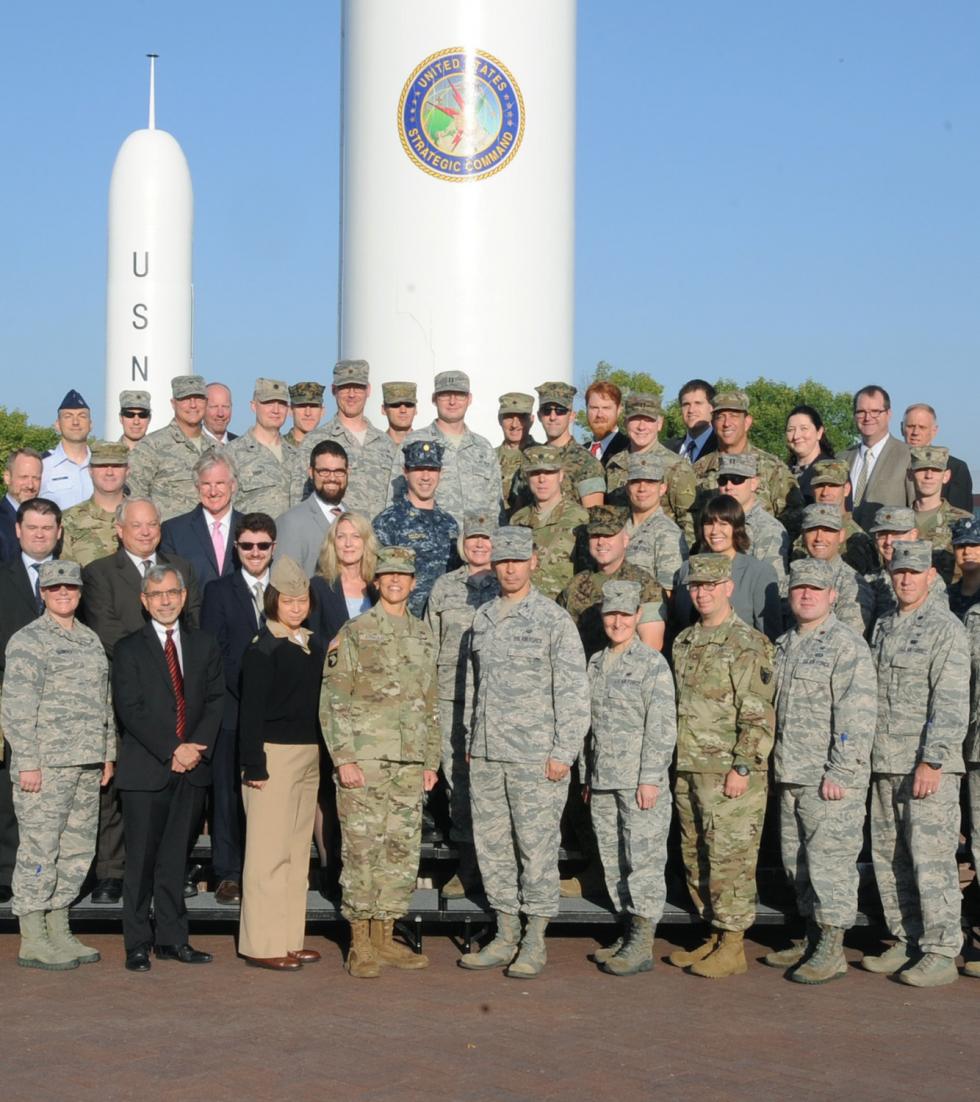
Collaboration with USSTRATCOM: 21st Century Strategic Deterrence
20 Sep 2017
U.S. Strategic Command (USSTRATCOM), in collaboration with the National Strategic Research Institute (NSRI) and the University of Nebraska College of Law, hosted the Advanced Operational Law Conference here Sept. 6-8, to explore the legal perspectives related to 21st century strategic deterrence.
During the conference, international legal and defense experts from government agencies and academia participated in classified and unclassified discussion panels on a variety of topics. They discussed international law applicable to military uses of outer space, rogue states and nuclear weapons, as well as limitations on cyber operations and issues of sovereignty in cyberspace.
Delivering the keynote address, U.S. Army Brig. Gen. Susan Arnold, U.S. Army assistant judge advocate general for military law and operations, emphasized the need for cooperation among experts and that legal issues arise at all levels of command.
“The practice of law is a collaborative process and relies upon the concerted effort of dedicated professionals at every level from the tactical to the strategic and policy realms,” Arnold said.
Arnold also emphasized the importance of being flexible and ready for unexpected situations.
“You think you’re going to be doing X, Y, or Z, but all of us have to be poised regardless of our service and regardless of whether we wear the uniform or civilian clothes to support something that could come out of nowhere,” Arnold said.
David Thaw, University of Pittsburgh assistant professor of Law and Information Sciences, stated that at this year’s conference there was a heightened focus on strategic stability.
“The geopolitical economic environment has changed tremendously, but there really are a substantial series of changes globally, which whether or not they were anticipated, change the ways in which we think about strategic stability and I think that seems to be at the forefront in many of these discussions,” Thaw said.
Jack Beard, University of Nebraska associate professor and faculty advisor for the Space, Cyber and Telecommunications Law Program, noted that the conference was unique because it’s attended by legal and policy experts, legal practitioners and academics.
“The conference gives U.S. military legal officers the opportunity to hear preeminent experts discuss legal and policy issues that are important to them, the work they do and their practice,” Beard said. “USSTRATCOM needs legal advisors who can see the big picture to answer the complicated questions and this is a chance to do that. It’s hard to do when you’re just focused on whatever your particular job is for whatever command you’re in, so this is a really important function for USSTRATCOM and for U.S. national security.”
Arnold added that the conference brought together academics and military professionals from all services as well as different nations.
“The nature of our national security and those of our allies is both politically and legally complex and these conferences reinforce our partnerships and hone our thinking,” Arnold said. “I am very grateful that I had a chance to participate and I look forward to continuing the relationship with USSTRATCOM and the University of Nebraska.
One of nine Department of Defense unified combatant commands, USSTRATCOM has global missions assigned through the Unified Command Plan that include strategic deterrence, space operations, cyberspace operations, joint electronic warfare, global strike, missile defense, intelligence, and analysis and targeting.
For more information on USSTRATCOM visit us at https://www.facebook.com/usstrategiccommand and https://twitter.com/us_stratcom
For more information on NSRI visit https://nsri.nebraska.edu/
Space, Cyber, and Telecommunications Law Executive Director Elsbeth Magilton was the lead contractor for this initative.
(Photo by Steve Cunningham)
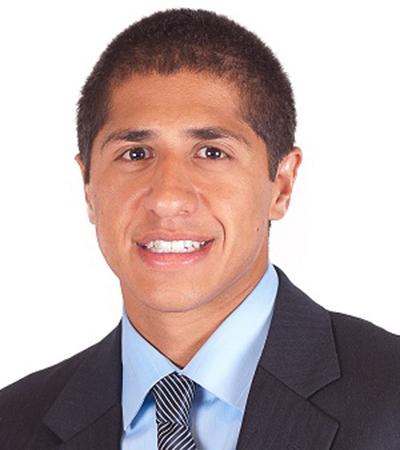
Koohmaraie, '14, Drafts Self Drive Act
18 Sep 2017
Bijan Koohmaraie, ’14, drafted the first self-driving car bill to be introduced to Congress, the Self Drive Act. Koohmaraie is Counsel for the Committee on Energy and Commerce in the U.S. House of Representatives.
House lawmakers approved the Self Drive Act on Wednesday, September 6. The legislation attempts to create a guide for the research and development of self-driving cars. The bill would allow companies that are building self-driving cars to apply for exemptions from the state and federal regulations that govern safety and design. Under the bill, automakers could eventually add up to 100,000 of these test vehicles to U.S. roads every year.
The Self Drive Act requires automakers to ensure that consumers and regulators are fully informed about the companies' approach to privacy and cybersecurity. In addition, the legislation calls on the Department of Transportation to review its own regulations, many of which define a car by referencing things such as steering wheels and brake pedals, features that automakers may choose to eliminate in these vehicles.
More information about the Self Drive Act is available from the Washington Post: https://www.washingtonpost.com/news/the-switch/wp/2017/09/06/the-house-just-paved-the-way-for-more-self-driving-cars/?utm_term=.f8f02bedfb53
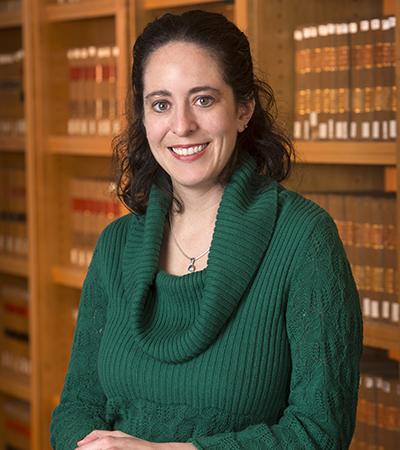
Blankley Publishes Book on Alternative Dispute Resolution
06 Sep 2017
Associate Professor Kristen M. Blankley published Understanding Alternative Dispute Resolution, with co-author Maureen Weston, in August 2017.
Understanding Alternative Dispute Resolution provides a comprehensive overview of the field of Alternative Dispute Resolution (“ADR”). The use of ADR methods has grown rapidly and touches the practices of lawyers on a local, national, and international level. ADR has transformed the nature of the lawyers’ practice and roles as client counselor, advocate, and neutral. The treatise covers the major ADR processes, including client counseling, negotiation, mediation, arbitration, and collaborative law and addresses legal, practical, and ethical aspects of each process. This title provides a framework for selecting the most appropriate dispute resolution process and will assist attorneys, law students, neutrals, and parties in conflict in effectively addressing, managing, and resolving disputes.
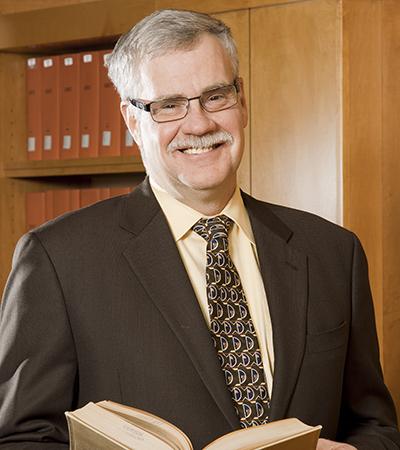
Lenich Named Special Assistant to the Interim Vice Chancellor for Student Affairs
30 Aug 2017
Professor John Lenich has been named a Special Assistant to the Interim Vice Chancellor for Student Affairs. His responsibilities include, among others, identifying needed improvements in the student code of conduct and the procedures used in conduct cases, advising the professional staff on conduct matters, procedures, and student rights, and preparing forms and reference materials for the professional staff.
Professor John Lenich recently completed a three-year term on the University Student Conduct Board.
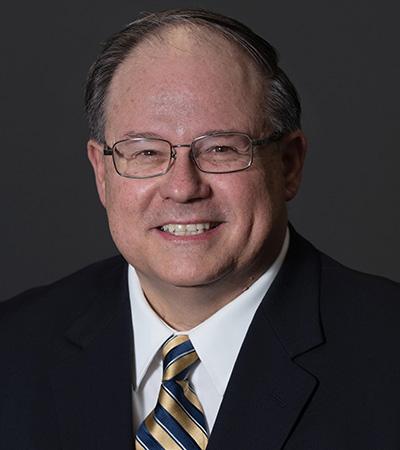
Pigsley, '81, Elected a Fellow of the College of Labor & Employment Lawyers
25 Aug 2017
Jerry Pigsley, '81, has been elected a Fellow of the College of Labor & Employment Lawyers. Pigsley is a partner at Woods & Aitken LLP and a member of the firm's Labor & Employment practice group. Election as a Fellow is the highest recognition by one’s colleagues for sustained outstanding performance in the profession, exemplifying integrity, dedication and excellence. Pigsley is one of only three attorneys to be elected out of the Eighth Circuit for the 2017 Class of Fellows. He will be one of seven Fellows in Nebraska and the only active Fellow in Lincoln. Pigsley will be inducted later this year in conjunction with the American Bar Association Labor & Employment Law Section’s Continuing Legal Education Conference. With the current installation, the College is represented by more than 1,400 members in 46 states, the District of Columbia, Puerto Rico and eight Canadian Provinces.
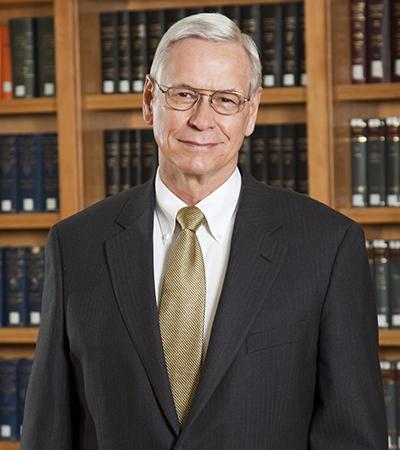
Gardner Publishes Updated Casebook
18 Aug 2017
Children and the Law, fourth edition, co-authored by Martin Gardner, Marci A. Hamilton and Anne Profitt Dupre, has been released.
This edition has been comprehensively updated and continues to focus on the foundation of children’s rights in Supreme Court cases, and to be an accessible and readable textbook for undergraduate, law, and graduate students. Children and the Law examines the rights and protections afforded minors under common law doctrine, federal constitutional principles and legislative enactments.
The casebook is divided into six sections:
- Chapter 1 discusses minority as a legal status including the contrasting theories of the rights of juveniles.
- Chapter 2 examines the rights of children with the context of the Family, including such topics as the interests of the parents, child and state, the care of the child, and protecting the health of the child.
- Chapter 3 discusses child abuse and institutional neglect including such topics as adjudication, reporting statutes and neglect outside of the family.
- Chapter 4 addresses the rights of children in the context of Society, including such topics as obscenity and pornography, privacy rights of minors, contract liability and tort liability.
- Chapter 5 examines the rights of children in the context of School, including such topics as first amendment rights, religious practice, school discipline, school searches, discrimination, harassment and bullying and the disabled student.
- Chapter 6 covers the Juvenile Justice System, including such topics as procedure, jurisdiction, the pre-adjudication process, adjudication, dispositions, and the future of juvenile justice.
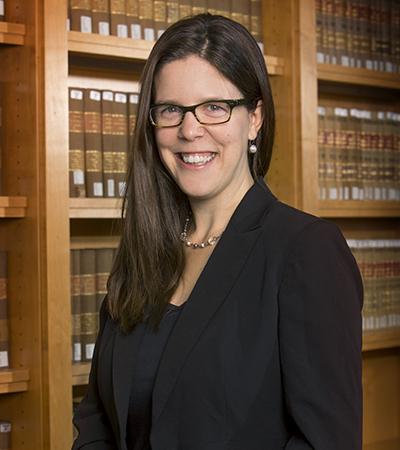
Shoemaker Named Recipient of the Ray H. Bunger Memorial Award for Excellence
17 Aug 2017
Professor Jessica Shoemaker is the 2016-2017 recipient of the Ray H. Bunger Memorial Award for Excellence. This Award is an annual award chosen on the basis of demonstrated excellence in teaching, research, academic promise, and achievement related to the fulfillment of the research and teaching mission of the University of Nebraska College of Law. The donor for this award gave this gift to commemorate the life of the donor’s father, Ray H. Bunger, who was a lifelong devoted supporter of the University of Nebraska. He sent his three sons to the University of Nebraska for varying periods and several of his grandchildren also received education at the University. He firmly believed that “a good education is something that can never be taken away from you.” He was President of the Franklin County School District #44 and Secretary of the Board of Upland COOP Credit Association.
This year, Professor Shoemaker published an outstanding article in the Michigan Law Review and continues to gain recognition nationally for her cutting-edge approach to land tenure issues on Native American land. Professor Shoemaker’s teaching remains highly successful and this year she also added Wills and Trusts. On top of this, Professor Shoemaker’s students rave about her teaching and the amount of individual feedback she provides. Professor Shoemaker has worked hard to sponsor externships with four tribal governments to provide a tangible positive experience for our upperclass students that helps build their professional portfolio, which she does in addition to her significant service work with the Rural Futures Institute.
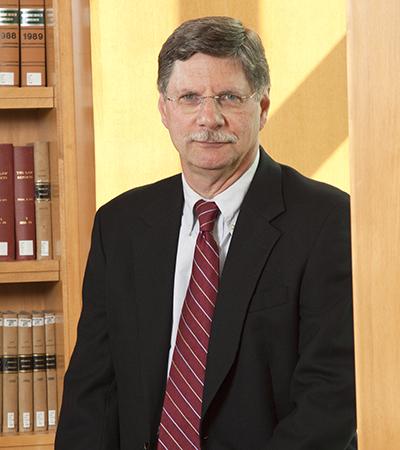
Denicola Named Recipient of the John H. Binning Award for Excellence
17 Aug 2017
Professor Rob Denicola is the 2016-2017 recipient of the John H. Binning Award for Excellence. This award is provided annually to a professor who excels in teaching, research or public service. This year Professor Denicola completed a new edition of his casebook and had an article published in the Rutgers Law Review. Professor Denicola also continues to provide wonderful service to the law school, the University, and beyond. He serves as the Chair of the admissions committee, helping to identify the right students for Nebraska Law, and his teaching receives some of the highest praise from his students.
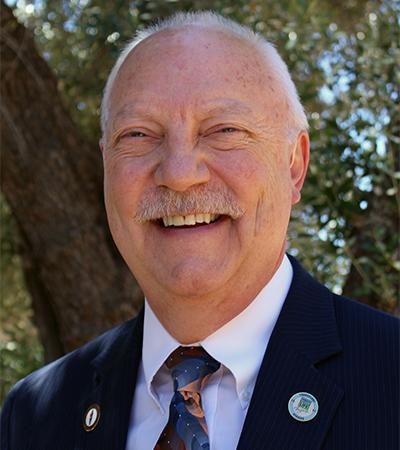
Keist, '77, Named Chairman of the Board and President of Gospel Justice Initiative
15 Aug 2017
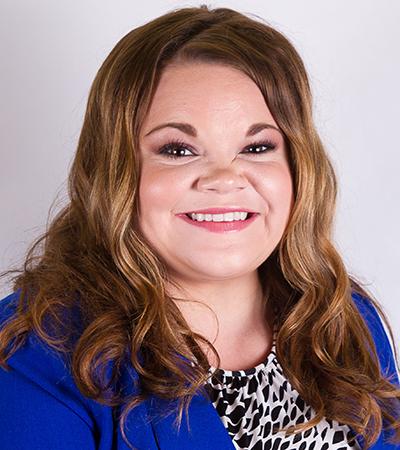
Nebraska Law’s Delta Theta Phi Chapter Wins Most Improved Senate at National Convention
14 Aug 2017
The Nebraska Law Chapter of Delta Theta Phi (DTP) International received the award for Most Improved Senate at the national organization’s 2017 Convention and Leadership Conference. The award recognized recruitment and an increase in members during the 2015-2016 academic year. There are 37 senates at law schools around the country.
In addition, 3L Dayna Langdon took second place in the oral advocacy competition at the 2017 Convention and Leadership Conference.

Nebraska Law expands offerings with patent, trademark office partnerships
11 Aug 2017
Two new partnerships between the University of Nebraska College of Law and the U.S. Patent and Trademark Office will give Husker law students a new way to practice intellectual property law, while providing area entrepreneurs and inventors the help they need with applications and issues.
On Aug. 14, Nebraska Law students in the Weibling Entrepreneurship Clinicwill begin practicing trademark law before the patent and trademark office. Nebraska Law recently joined 50 other law schools in the United States in being selected for the office’s Law School Clinic Certification Program.
Brett Stohs, the Cline Williams Director of the Weibling Entrepreneurship Clinic at Nebraska Law, said Husker students will gain experience drafting and filing trademark applications for their clinic’s clients. Authorized to practice before the federal patent and trademark office under faculty supervision, they also will gain experience answering “office actions” – when USPTO raises an issue with a client’s application – and communicating with trademark examining attorneys for applications that they have filed.
Clients will also benefit, receiving priority service from dedicated program examiners at the trademark office, Stohs said.
Later this fall, the college also will become a complete resource for entrepreneurs and inventors looking for help with trademark filings and preliminary patentability searches. The Schmid Law Library at McCollum Hall will become the state’s Patent and Trademark Resource Center.
Richard Leiter, director of the law library, said Schmid reference librarians are well positioned to help clients research complicated legal issues, including the search of patent and trademark databases. Librarians also will offer training and information sessions about available resources.
“As the only resource center serving the state, we have a responsibility to ensure Nebraskans have the intellectual property law resources they need,” Leiter said
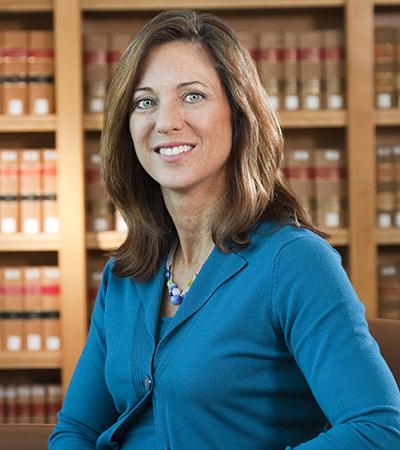
Zellmer’s Article Published in Rocky Mountain Mineral Law Foundation Journal
07 Aug 2017
Professor Sandi Zellmer’s article, The Changing Nature of Private Property Rights to Federal Resources, was published in the Rocky Mountain Mineral Law Foundation Journal. The article’s abstract appears below.
In early 2016, a 41 day long armed standoff between armed militants and county, state, and federal law enforcement agencies at the Malheur National Wildlife Refuge ended with one death and the prosecution of over two dozen individuals for abuse of government property, conspiracy, and related charges. It started when the Hammonds, who held federal grazing permits to run their cattle on Bureau of Land Management (BLM) land near the Refuge, were charged with arson for starting fires on federal land. When the Hammonds were convicted for the incident, another notorious ranching family from Nevada, the Bundys, organized the Malheur occupation to protest heavy-handed government interference with their property rights.
The Malheur occupation raises questions concerning the extent of private interests in federal lands and resources, and whether, how, and when such interests can be restricted or terminated by the United States. Permittees, licensees, lessees, and concessionaires have asserted a wide array of claims to timber, water, wildlife, rights-of-way, grazing permits, minerals, and even ski resorts and recreational outfitting activities. A contentious oil and gas lease in the Badger-Two Medicine area near Glacier National Park is a prime example. When the BLM cancelled the lease, citing environmental and cultural concerns, the developer, Solenex, sued, arguing that the BLM's decision is ultra vires and violates its rights. [FN1] A few months later, the BLM canceled fifteen additional oil and gas leases in the Badger-Two Medicine area, playing into industry advocates' fear that the Solenex decision has set a dangerous precedent for other companies who have waited years--in some cases decades--for access to their leaseholds.
This paper examines the nature of private interests in federal lands and resources, and how these interests are treated under federal law and policy. The first Part describes an array of disputes, from grazing to mineral development to ski resorts. Part II details the law of private interests in federal lands and natural resources. The Property Clause is addressed in Part III. Part IV goes beyond the letter of the law to tease out the subtext underlying the durability of private claims.